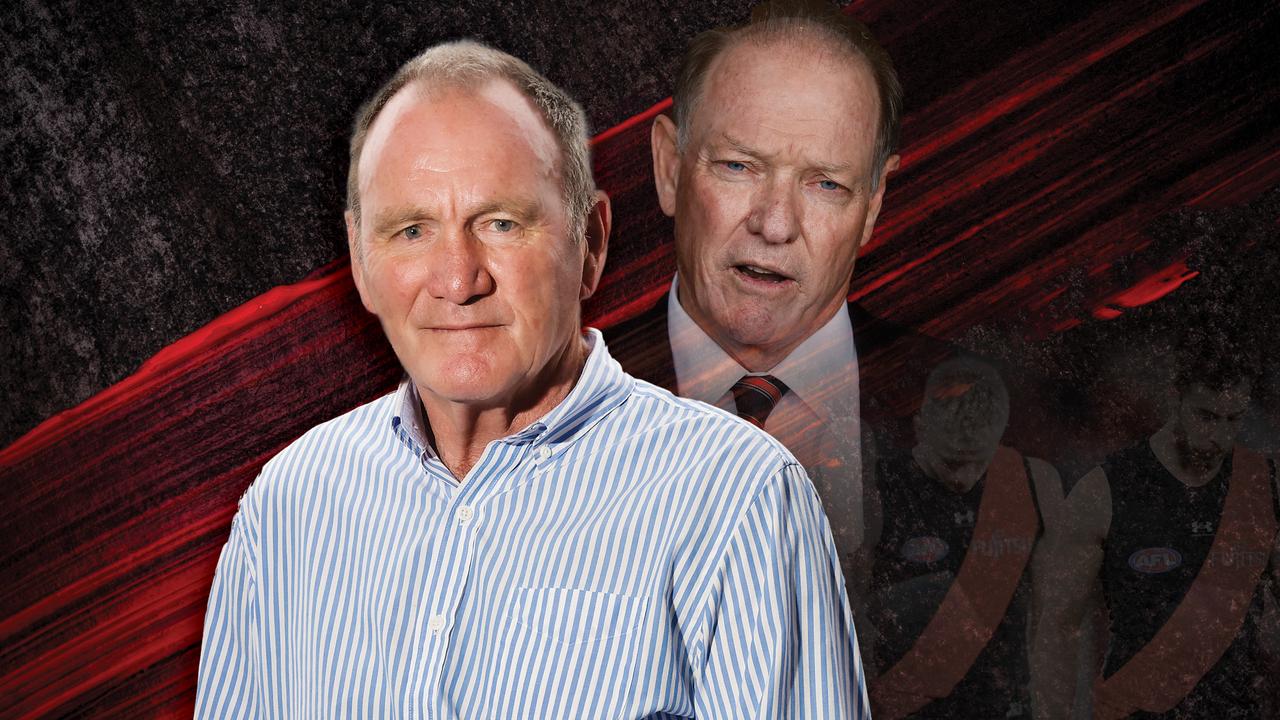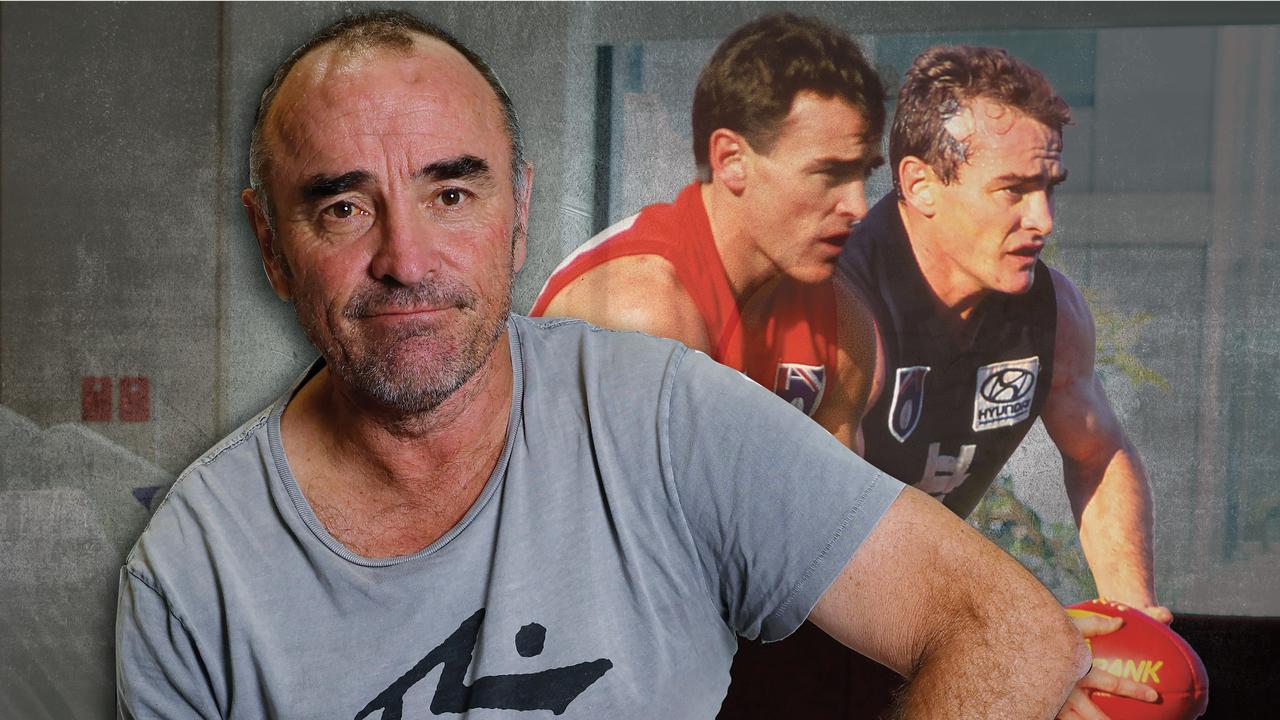Bob Murphy pulls pin on a career full of love and tragedy, writes Mark Robinson
HE played for 15 years and will be remembered for being a brilliant captain for three. Bob Murphy is the beating heart of the west, writes Mark Robinson.
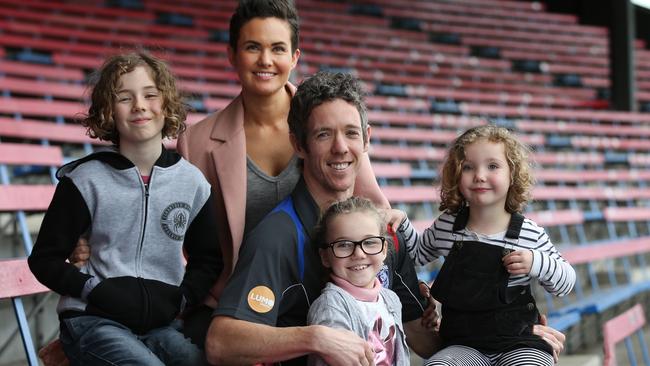
Mark Robinson
Don't miss out on the headlines from Mark Robinson. Followed categories will be added to My News.
HE arrived as Robert Murphy from Warragul and leaves the AFL as Bob Murphy the poet, storyteller and beating heart of the west.
The pimpled became the red, white and blue pimpernel, the face of change at the Western Bulldogs.
At the end, it wasn’t a Greek tragedy but an Irish one.
This Murphy, created from a dad who was a priest and a mum who was a nun, had become the spiritual leader, which is described as being concerned with the souls he leads, so that they will be “fully equipped and no longer be infants, tossed back and forth by the waves, and blown here and there by every wind’’.
That was the Bulldogs at the end of 2014.
Murphy spoke about the dire times, the irrelevancy and his club being labelled a laughing stock. Amid the firestorm, Murphy felt compelled to ask the club if he could be captain. It proved to be an inspiring move.
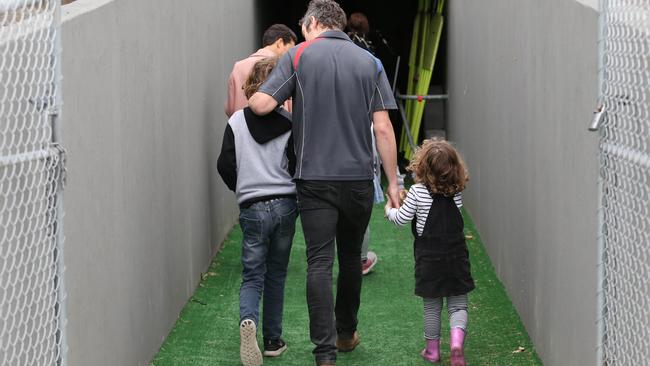
While others at the club made decisions on personnel, Murphy made a commitment to the cause. And others followed,
Guided by Murphy and his soul brother Luke Beveridge, the Bulldogs became champions inside two seasons. Football doesn’t wait for anyone, but such was the script in 2016, we have to pause. The glory was the Bulldogs’, the tragedy was Murphy.
He never looked liked crying at his farewell, Bob, until he was asked about missing the premiership.
He hasn’t watched the game - yet - and although Luke Beveridge said Bob created the momentum which led to the historic flag, Bob accepts he wasn’t in the 22.
“If I’m not a premiership player then there will be a sense of emptiness there,” he said. “But I have a lot of pride in last year. But to not be one of the 22 ... there’s a hole in my heart there.’’
Beveridge: “We wouldn’t have got there if not for him.”
From afar, there are two parts to Murphy’s career.
He played 15 seasons as a player and played three seasons as captain and it could be argued his impact as captain outweighed his contribution as a player.
Don’t know if that’s an insult or a compliment but what is certain is that Murphy was a brilliant captain. He led and people followed and players believed.
He gave Bulldogs fans hope and a sense of togetherness and comfort. And he made others eat their words.
On October 15, 2014, amid the tumult at the Kennel, one foolish journo tweeted: “Dogs lost captain, coach, No.6, integrity, respect and generally lost their way ... and they bring in Boyd on a mill a year... #good luck’’.
It was directed at a club in turmoil.
Enter Bob as captain and Beveridge as coach and the joint was never the same.
“I’ve loved being at the one club,” Bob said.
“It’s in my skin, it’s in my bones and I encourage all the young players in the room to hang on as long as you can and hang on at the one club because it’s the pure joy just that I’ve gotten just from the daily grind of being at the one place with so many of the same people kind of sweeps me off my feet quite regularly.”
As a player, Bob was beautiful, a recruiter’s dream, said Beveridge.
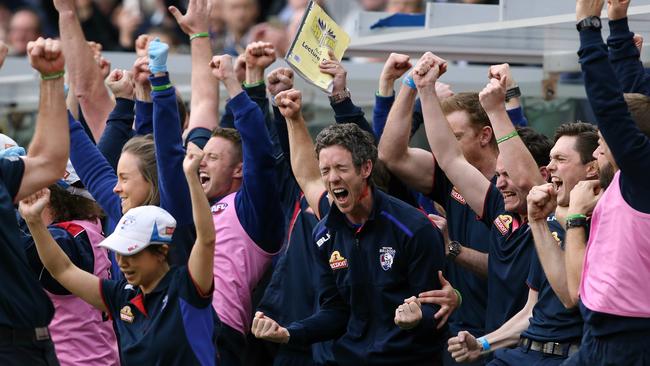
He could run, kick on both sides, was brave despite his weakling frame, and always played with adventure. They’re the favourite players. Those who take hangers, kick bundles of goals and those who grab the ball and bounce and run, daring themselves and daring others to go for the ride.
Ever watch National Geographic on Foxtel? Bob ran like a cheetah. His feet would blur, yet his head would be still. His legs had fast-twitch muscles and his brain fast-twitch thinking. Time and again, Bob would bamboozle opponents who for a second believed they had a handle on the situation, only for Bob to swivel the hips, shake the bum or goose-step past the poor bugger.
Always, the head was still.
Mostly always, the would hit the target by foot. Left and right. Not with laser-bullet types, but with a gentle, yet fast-spinning drop punt.
Beveridge said Bob represented the club with grace and certainly there was a grace about Bob’s football.
A dual All-Australian, he was once likened to the great Robbie Flower. He, too, mesmerised opponents with steps like Fred Astaire.
Flower, too, failed to win a flag.
Bob joins a list of greats who will retire at season’s end, but don’t smother him with too much adulation. Bob hates it.
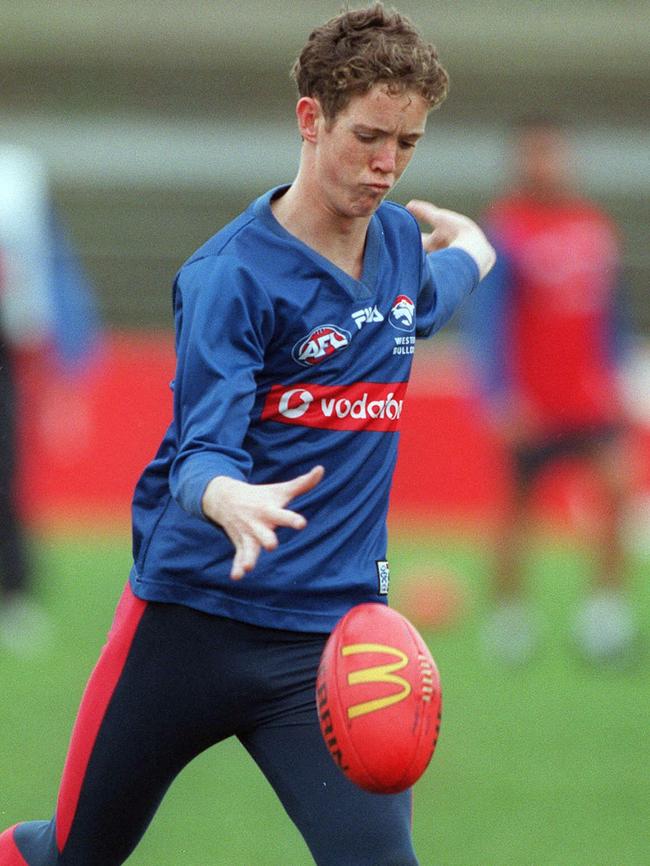
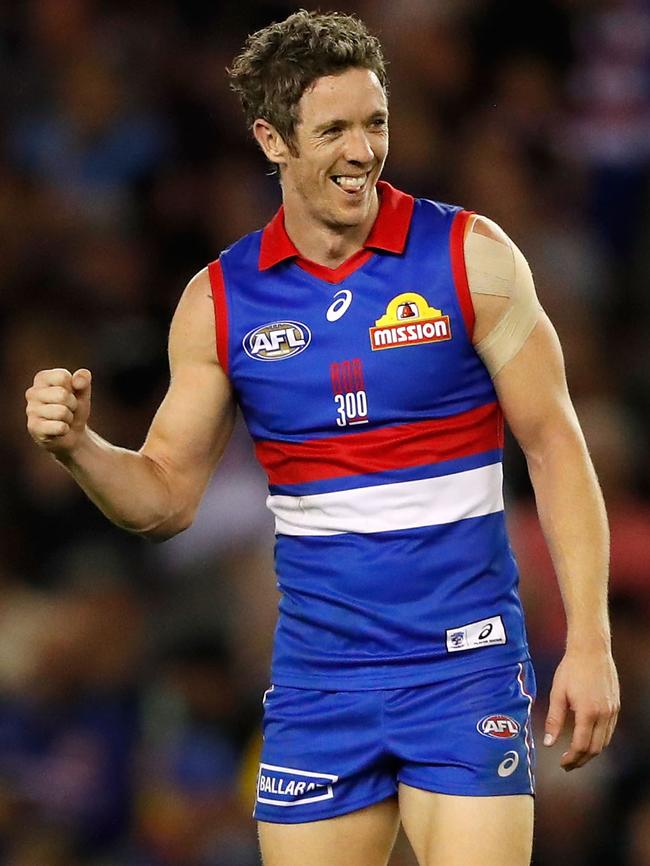
“The thing in footy is we have the armour on a lot — we’re judged, critiqued, hit, bumped, tackled, so we’re kind of on guard all the time so when people say nice things about you, you kind of don’t trust it necessarily, all that much,” he said.
“I’m hoping once I’ve finished playing I can take some of that armour off and just enjoy having a cup of tea and doing the crossword.”
Bob wasn’t the player that Luke Hodge or Sam Mitchell was, nor could he mark like Nick Riewoldt and not conjure magic like Steve Johnson, but none of them were loved by opposition fans like Bob was.
When Bob was asked by Beveridge to join him on the premiership podium last year, it was the most uplifting and heart-breaking moment in all of the Grand Finals.
By the following Monday, mostly everyone was “Bob’d out’’ and even Bob was sick of seeing himself in the newspapers.
Bob at his best is whimsical, nostalgic and romantic and often answers each question asked with an “ummm’’, which is his thinking music.
Talking of music, he thanked the musicians Tex Perkins, Tim Rogers and Paul Kelly and in the same breath thanked the physios and “witch-doctors”, the coaches, teammates and even Ben Hudson’s beard, and also spoke of the heroes of ‘54. When he arrived at the club, they were like “ghost stories”, he said.
Ghost stories and legend ... that’s also the legacy of Bob Murphy.



